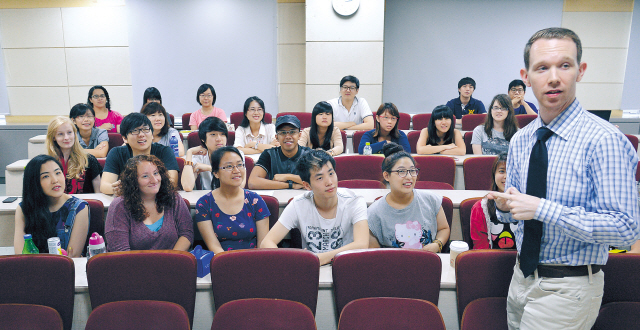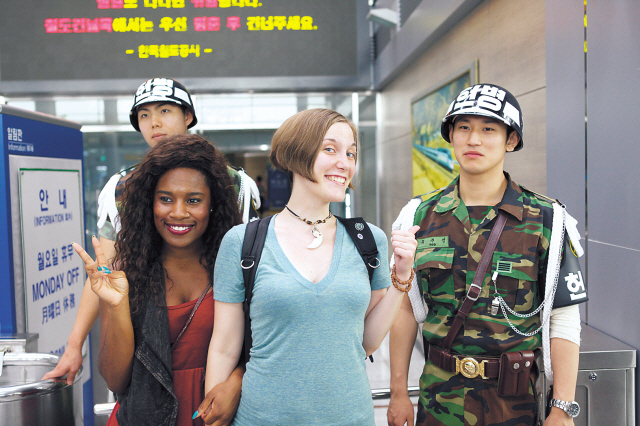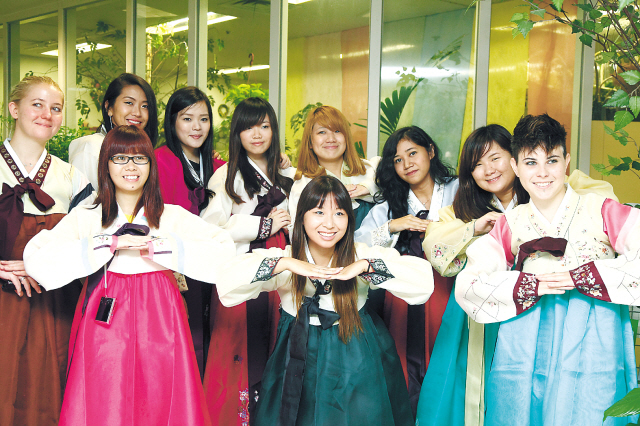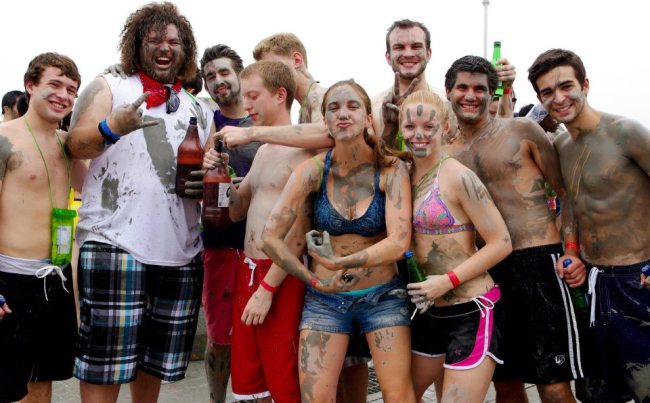Lam is one of a growing number of international students who got hooked on K-pop, became more interested in Korea and finally came to here to study.
The phenomenon is certainly part of the Korean Wave, or hallyu. Several other factors, such as local colleges’ continued efforts to revitalize their summer programs, are also at work, helping non-Korean students get hands-on experience of Korean culture.
Jang Dong-hyun, program manager of the International Summer Campus at Korea University, said that K-pop is one of the key factors prompting foreign students to register for summer schools in Seoul.

Jung Jae-hoon of the Office of International Cooperation at Hanyang University agreed with Jang on the importance of Korean pop culture.
“Students want to come and see everything about K-pop,” Jung said.
The surging popularity of Korean pop culture coincided with Korean universities’ efforts to attract more international students to their summer education programs and courses.
Actually, many Korean universities running summer schools have signed up more than 1,000 students each this year. The number of the students has continued to increase since the universities began summer programs.


Word-of-mouth recommendations among foreign students play a crucial role in boosting the number of summer school students, according to university staff.
“Students who had taken a summer course in Korea recommended their friends to follow suit,” Jang said.
A memorable and unique experience in Asia is another reason why students choose Korea over other countries for summer courses.
Christoph Huss, 23, attends a university in Switzerland and chose, along with his friend, a program in Seoul over the one in Paris as they “wanted to get some experiences and surprises” in a different culture. “Even if the two programs were the same price, we would choose Korea because it’s a new experience totally,” he said.
Some students come to Korea to take a class their school does not offer.
Aisha Barnes, 22-year-old student from University of South Carolina, came to Korea University to learn about Korea.
“At my home university, a lot of classes focus more on Japanese and Chinese instead of Korean,” she said. “I wanted to know more about Korea as a whole, the culture, the food and everything else in between.”
The high quality of the faculty is another advantage that characterizes summer programs in Korea. Yonsei and Korea University have increased the number of visiting professors to 40 and 56, respectively, for their summer programs.
The faculty of the programs also includes world-renowned professors. For instance, Stephen Stich, a leading scholar of philosophy, has begun to give lectures at Korea University this summer. He is in charge of two philosophy classes with 50 students each.
Kathryn Weathersby from the Johns Hopkins University, who is well-known among experts on Korea’s modern history, has taught students for three years at Korea University. Yonsei University assigned a U.S. law class to former New York State Supreme Court Judge Danny Chun for three years.
Among the other notable foreign faculty members are Charles Hamden-Turner of the University of Cambridge, who created “Dilemma Theory,” and Raymond Abelin from Nanyang Technological University. The two scholars have been teaching business classes at Sungkyunkwan University since 2008.
Lucy Woods, a 21-year-old British student studying at Hanyang University, said lectures in Korea are tougher than those in her home country.
“They (British universities) wouldn’t give you tests really, and they would be a sort of extra curriculum. They wouldn’t be mainstream subjects,” she said.
To expand the student enrollment and bolster the quality, Korea’s major universities are running summer courses with overseas partner universities. Ewha Womans University runs a summer school with University of Southern California’s East Asian Studies Center.
“The Korean Studies faculty and EASC see it as a wonderful opportunity for students to gain firsthand cultural experiences while taking courses on Korea on site,” said Choe Young-min, a professor of USC who has come to teach Korean cinema at Ewha for the summer.

Summer school students are also given an opportunity to participate in a variety of local cultural programs offered by the school.
Rebecca Brock from the University of Kentucky is taking a cooking class at Yonsei University to learn how to make kimchi.
“I’m enjoying the opportunity to make Korean food,” Brock said.
Students not only attend such culture-oriented classs but also visit tourist hot-spots such as royal palaces in downtown Seoul, the heavily-fortified Demilitarized Zone and the increasingly popular Boryeong Mud Festival.
“This is about striking a balance between experience and education,” said Kwon So-young of the Office of Global Affairs at Ewha Womans University.
During the summer school programs, foreign students tend to gain a deeper understanding of Korea, its culture and history. The culturally enriching summer programs at Korean colleges help them to stay longer here or return to Korea as an exchange student or get a job as an English teacher after going back to their country.
Barnes is one such student who is considering coming back to Korea as an English teacher after her graduation. She said Korea is “a friendly country” and she feels safe walking around and it’s “like a second home now.”
By Nam Yoon-seo, Intern reporter
(jnam8257@heraldcorp.com)
Intern reporters Kim Kyung-eun, Lee Hee-jung and Yoon Sung-won contributed to this article.
-
Articles by Korea Herald










![[Robert J. Fouser] Social attitudes toward language proficiency](http://res.heraldm.com/phpwas/restmb_idxmake.php?idx=644&simg=/content/image/2024/05/16/20240516050799_0.jpg&u=)
![[Graphic News] How much do Korean adults read?](http://res.heraldm.com/phpwas/restmb_idxmake.php?idx=644&simg=/content/image/2024/05/16/20240516050803_0.gif&u=)






![[Herald Interview] Byun Yo-han's 'unlikable' character is result of calculated acting](http://res.heraldm.com/phpwas/restmb_idxmake.php?idx=652&simg=/content/image/2024/05/16/20240516050855_0.jpg&u=)
